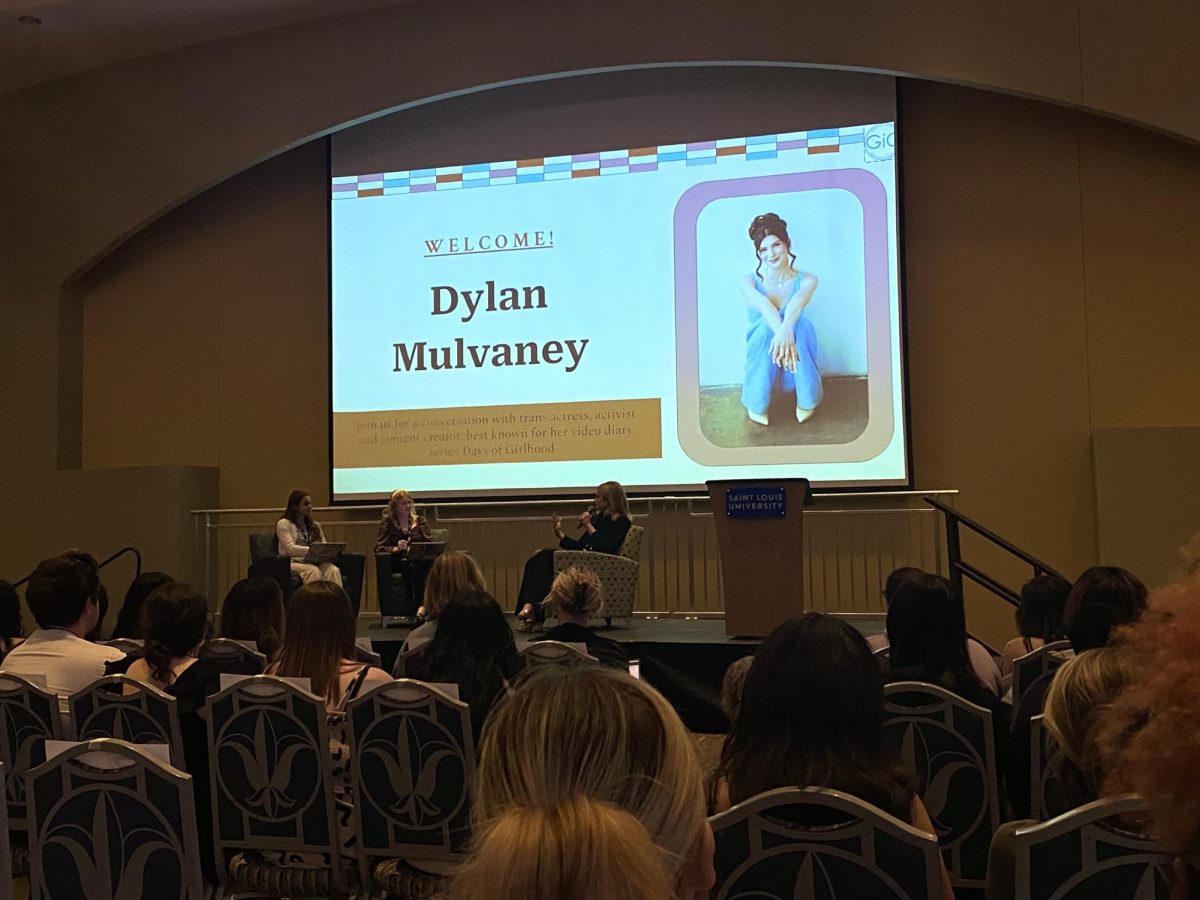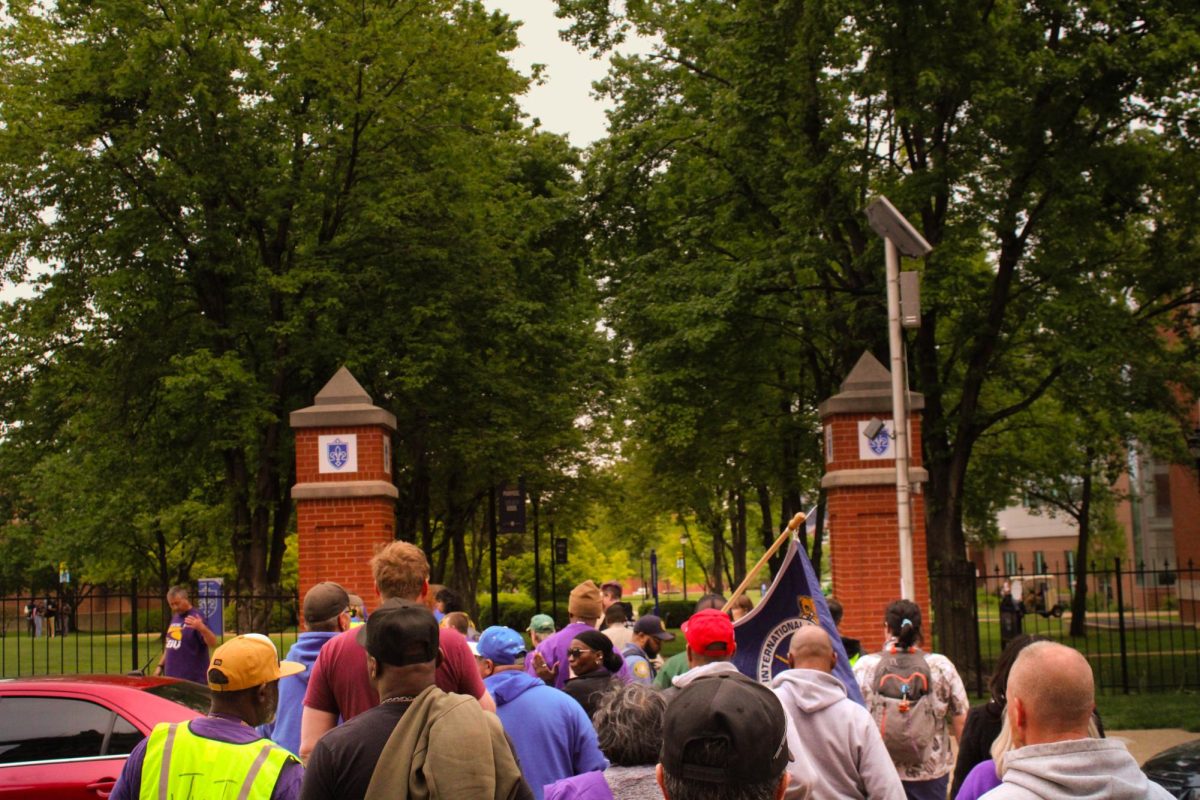At the end of a recent semester, Charles Flint, a junior in the Doisy College of Health Sciences, said he was invited to a meeting in the office of one of his professors.
When he arrived at the meeting, Flint said that the professor began to berate him about the content of the anonymous instructor evaluation that Flint had submitted at the end of the course.
“The professor began to yell at me for a period of five minutes,” said Flint, who declined to identify the professor, the department or the college in which that professor was teaching. “It would have been longer if I would not have interrupted him.”
Flint, a health sciences senator, first reported the incident at a Student Government Association meeting a few weeks ago.
He recently told The University News that, during the meeting, the professor presented him with his evaluation, on which the professor had written his name. Flint said he saw a folder containing other student evaluations on which the professor had similarly written students’ names.
Although their format differs from department to department, anonymous evaluations are a standard part of student participation in a course. They are submitted near the end of the semester to the department and given to the professor-only after the students’ final grades have been declared.
“I believe I gave this professor a fair and accurate evaluation,” Flint said, adding that other students in the class told him that they had given the professor similar evaluations.
Flint said that the professor did not say how he or she had determined which evaluation Flint had written, but he suspects that the professor identified his handwriting.
After the incident, Flint spoke with the health sciences dean, Charlotte Brasie Royeen, Ph.D., and expressed his concern about the current evaluation system.
“My main goal in coming forward with my story is to bring attention to a severely flawed system,” Flint said, who is studying health information management. “While my department has used electronic course evaluations for years, my dean has begun to address the aggregate issue by implementing electronic evaluations throughout our entire college.”
Royeen was unavailable for comment before the U. News went to press, as were the deans of the John Cook School of Business, the School of Medicine and the School of Public Health.
J. Michael Sproule, Ph.D., the dean of the College of Arts and Sciences, said that evaluation procedures varied throughout the college but that administrators were “exploring an online evaluation system.” The departments of biology and theology already use an electronic method.
It will take “some time” to coordinate a college-wide online practice, Sproule said, but “there is an emerging consensus that online evaluations are a good way . to increase confidentiality, achieve uniformly good response rates, decrease paper and handling costs, enhance the ability to summarize data-particularly qualitative responses-and use these data to improve teaching.”
The dean of SLU’s Madrid campus, Rick L. Chaney, Ph.D., said that his school has used Web-based evaluations exclusively for about seven years.
At the time that the issue was debated, Chaney wrote in an e-mail, “Some skeptical faculty acquiesced after a faculty committee polled the students and found that they were overwhelmingly in favor of electronic evaluations-precisely because of the inability of faculty to identify students via their handwriting.”
Chaney said that administrators in Madrid offer incentives, like free T-shirts, to students who take the time to fill out evaluations. He said the student response rate is about 70 percent.
Interim Dean of Parks College of Engineering, Aviation and Technology Neil Seitz, Ph.D., said that procedures vary among Parks’ departments as well, but that department chairs recently “brought up the desirability of standard procedures” and that “assurance of confidentiality” was discussed.
James F. Gilsinan, Ph.D., the dean of the College of Public Service, said that evaluations in his departments are usually retyped by a secretary, “eliminating the possibility of tracing the handwriting.” He added that he would support the use of online evaluations.
The dean of the Law School, Jeffrey E. Lewis, J.D., said that his school uses handwritten evaluations.
“Since in most of our classes students take only a final exam-which is graded by exam number-an occurance such as [Flint’s] would be highly unlikely in the law school,” Lewis said.
The dean of the College of Philosophy and Letters confirmed that that school uses written evaluations as well.
SGA Academic Vice President Elle Hogan said that she and her committee have begun to explore whether an electronic evaluation system, based in WebCT, could be implemented throughout the University.
Hogan said that some electronic systems work better than others, and that the Department of Sociology and Criminal Justice’s method seems to be the best.
By not posting a student’s grade until he or she has completed an evaluation, that department, using WebCT-based evaluations, ensures that students remain anonymous but that evaluations are still filled out. Hogan said her committee will soon bring a similar proposal to University Provost Joseph Weixlmann, Ph.D.
“We’re going to bring that plan to the provost and see if we can implement it University-wide,” Hogan said.
“When the system is run properly, when the author of an evaluation is kept private and confidential, I am a firm believer in completing course evaluations,” Flint said. “Professors should not receive a completed evaluation that can be linked to a student.”
SGA, Deans investigate evaluations
Andrew Ivers
•
March 2, 2006
Story continues below advertisement
Leave a Comment
Donate to The University News
$1910
$750
Contributed
Our Goal
Your donation will support the student journalists of Saint Louis University. Your contribution will help us cover our annual website hosting costs.
More to Discover






